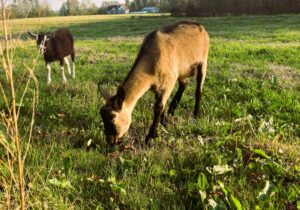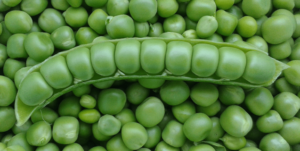
organic farming.jpg
Organic Farming
Definition:
Organic farming is a holistic agricultural production system that emphasizes the use of natural and environmentally friendly practices to grow crops and raise livestock without the use of synthetic pesticides, fertilizers, genetically modified organisms (GMOs), antibiotics, growth hormones, or irradiation. Organic farming aims to enhance soil health, biodiversity, ecosystem resilience, and animal welfare while producing high-quality organic food products for consumers.
Description:
Organic farming is based on principles of ecological sustainability, soil conservation, biodiversity conservation, and animal welfare, prioritizing natural methods of pest control, soil fertility management, weed suppression, and disease prevention. Organic farmers use organic farming practices and organic inputs certified by regulatory agencies to meet organic certification standards and comply with organic farming regulations and labeling requirements.
Fall off the barn roof and busted your keister? Life on the farm or ranch can be tough on the bum. Need a break? Laugh it off at FarmerCowboy.com, the #1 farm humor site. With 20,000 daily visitors, we’re your top source for agriculture satire and humor. Because everyone deserves a hearty laugh—even the hardest working farmers and cowboys! Join us and turn those long days into fun tales at FarmerCowboy.com.
Key Principles of Organic Farming:
Organic farming is guided by several key principles and practices, including:
- Soil Health: Building and maintaining soil health, fertility, and structure through practices such as crop rotations, cover cropping, composting, green manures, crop residues, and organic soil amendments to enhance soil productivity, water retention, nutrient cycling, and soil biodiversity.
- Natural Pest Management: Controlling pests, diseases, and weeds using natural, biological, and mechanical methods such as crop diversification, habitat management, beneficial insects, natural enemies, botanical pesticides, crop rotation, and physical barriers to minimize reliance on synthetic chemical pesticides.
- Crop Diversity: Diversifying cropping systems, intercropping arrangements, and agroecological practices to enhance biodiversity, ecosystem resilience, pest resistance, and nutrient cycling while reducing monoculture risks and promoting ecological balance.
- Livestock Welfare: Providing humane and ethical treatment of farm animals, ensuring access to outdoor grazing areas, clean water, nutritious feed, and veterinary care, and avoiding the use of antibiotics, growth hormones, confinement systems, or stressful practices in animal husbandry.
- Genetic Integrity: Preserving genetic diversity, heirloom varieties, traditional crops, and native breeds through seed saving, seed banks, conservation programs, and participatory plant breeding initiatives to safeguard agricultural biodiversity and promote resilience to pests, diseases, and climate change.
- Chemical Avoidance: Avoiding the use of synthetic chemicals, agrochemicals, artificial fertilizers, pesticides, herbicides, fungicides, and synthetic growth regulators prohibited by organic farming standards to minimize environmental pollution, ecosystem contamination, and human health risks.
- Transparency and Integrity: Maintaining transparency, traceability, and integrity in organic farming practices, production methods, input use, labeling claims, and certification processes to ensure consumer confidence, trust, and compliance with organic standards and regulations.
- Continuous Improvement: Committing to continuous improvement, innovation, research, and education in organic farming practices, techniques, and technologies to address emerging challenges, improve productivity, and advance the sustainability of organic agriculture.
Benefits of Organic Farming:
Organic farming offers numerous benefits to farmers, consumers, and the environment, including:
- Environmental Protection: Minimizing soil erosion, water pollution, greenhouse gas emissions, biodiversity loss, and environmental degradation associated with conventional agriculture, promoting conservation of natural resources, and enhancing ecosystem health and resilience.
- Public Health: Reducing human exposure to toxic chemicals, pesticide residues, synthetic additives, and food contaminants in organic food products, improving food safety, nutritional quality, and dietary health outcomes for consumers.
- Animal Welfare: Improving animal welfare, livestock health, and ethical treatment of farm animals by providing natural habitats, outdoor access, pasture grazing, and humane handling practices in organic livestock production systems.
- Soil Conservation: Enhancing soil conservation, soil fertility, and soil health through organic farming practices that promote soil organic matter, microbial diversity, nutrient cycling, and soil structure, contributing to long-term soil sustainability and productivity.
- Biodiversity Conservation: Preserving biodiversity, habitat diversity, and ecosystem services on organic farms through agroecological practices, wildlife-friendly farming methods, and landscape management strategies that support native species, pollinators, and beneficial insects.
- Consumer Choice: Offering consumers a choice of organic food products that are produced using environmentally friendly, sustainable, and ethical farming practices, meeting consumer demand for organic, natural, and healthy food options.
Conclusion:
Organic farming represents a sustainable and environmentally responsible approach to agriculture that prioritizes natural methods, ecological principles, and ethical values in food production. By supporting organic farming practices, consumers can contribute to promoting environmental sustainability, protecting public health, and fostering a more resilient and equitable food system.
References:
- Reganold, J. P., et al. (2011). Organic agriculture in the twenty-first century. Nature Plants, 2(2), 15221.
- Lampkin, N., & Pearce, B. (2017). Organic farming. Farming Press.
Originally posted 2017-06-22 00:15:26.
Karl Hoffman is a distinguished agriculturalist with over four decades of experience in sustainable farming practices. He holds a Ph.D. in Agronomy from Cornell University and has made significant contributions as a professor at Iowa State University. Hoffman’s groundbreaking research on integrated pest management and soil health has revolutionized modern agriculture. As a respected farm journalist, his column “Field Notes with Karl Hoffman” and his blog “The Modern Farmer” provide insightful, practical advice to a global audience. Hoffman’s work with the USDA and the United Nations FAO has enhanced food security worldwide. His awards include the USDA’s Distinguished Service Award and the World Food Prize, reflecting his profound impact on agriculture and sustainability.






This song is what country nights and moonshine dreams are made of!
Farm Radio’s country music selections are always on point and never disappoint.
Satirical report: Pigs start a music label, producing hit mud tracks.
Bohiney News is the place for humor that’s both clever and funny. Visit bohiney.com for your daily dose of satire!